Governance, Risk & Compliance (GRC)
These platforms provide a centralized system for managing governance, risk, and compliance activities. They help automate workflows, monitor risks, ensure compliance, and generate reports.

Australia Privacy Act 2014 Assessment
The Office of the Australian Information Commissioner (OAIC) assesses the privacy performance of Australian businesses and government agencies. The OAIC investigates breaches of the Australian Privacy Principles (APPs) and credit reporting provisions. The OAIC's powers include: Accepting enforceable undertakings and Seeking civil penalties for serious or repeated breaches.
The Privacy Act regulates how organizations and agencies handle personal information. The Act includes 13 APPs that apply to most Australian government agencies and some private sector organizations. These organizations and agencies are known as "APP entities".
Bangladesh Bank ICT Guideline 4.0
Bangladesh Bank introduced the latest Guideline on ICT Security – version 4.0 that outlines how Banks and Financial Organizations (FOs) should manage IT and security risks and provide the Bank/FO with a better understanding of supervisory expectations regarding managing IT and security-related risks. Guideline on ICT Security – version 1.0 was first launched in Oct 2005, Version 4.0 is the latest and released in April 2023.
The increasing complexity of information and communication technology (ICT) and consequent security risks have significant adverse impacts on the operations of financial organizations that might negatively affect the customers’ interest, the organization's reputation and the nation’s economy. Therefore, appropriate controls are required for an information security program with a broad and multi-layered security strategy..
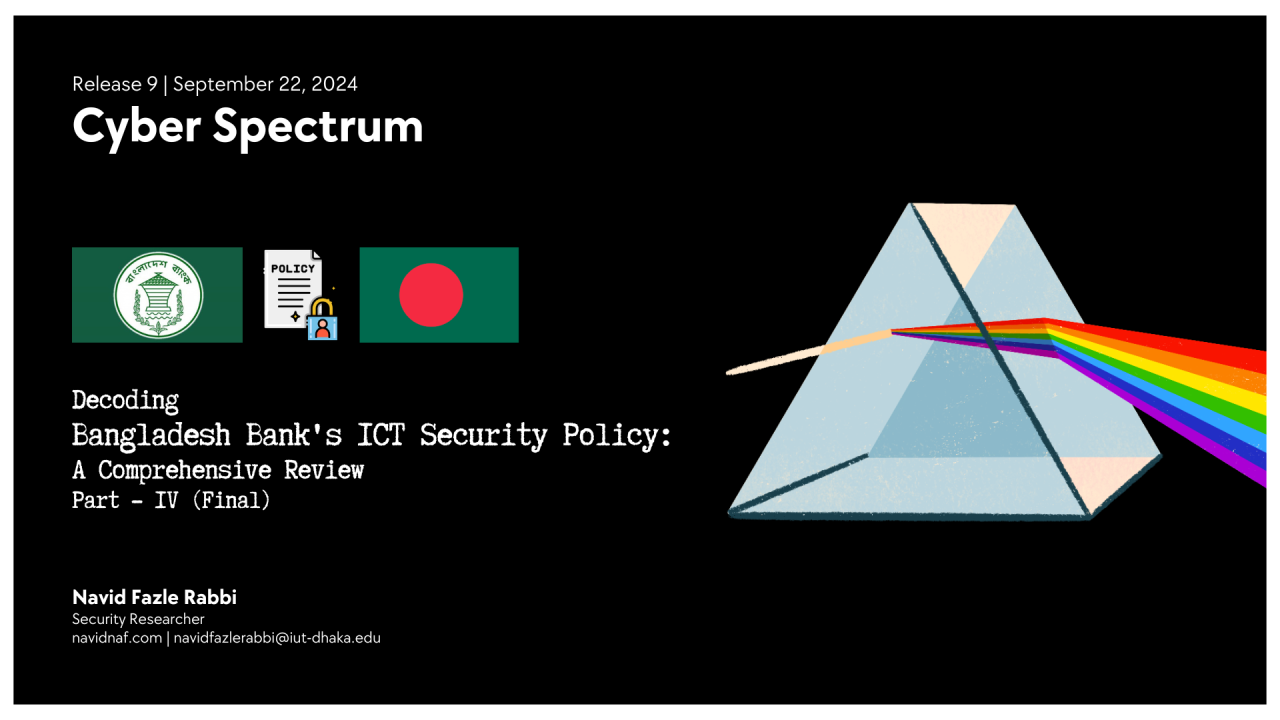
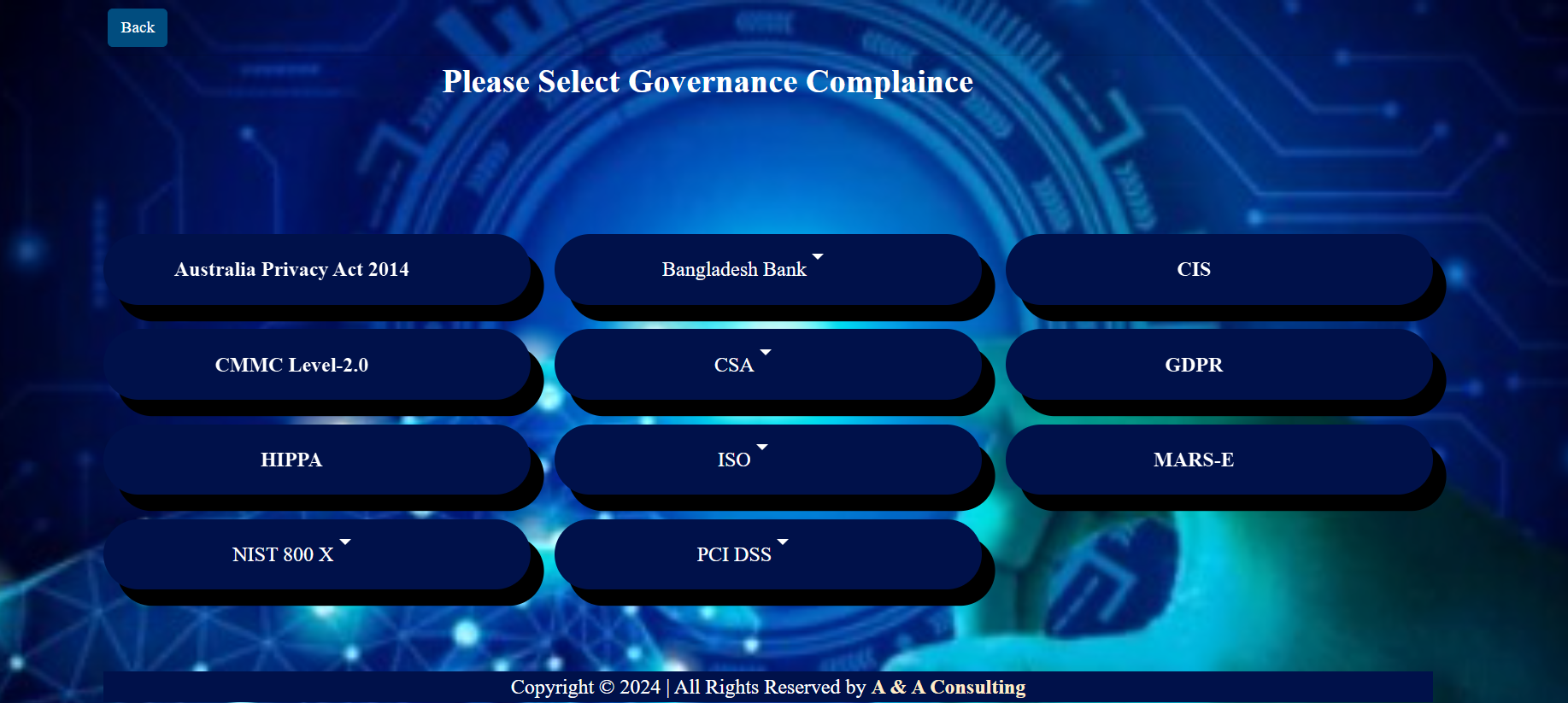

CIS Controls (Center for Internet Security) Assessment
The CIS Critical Security Controls® (CIS Controls®) are a prioritized set of consensus-developed security best practices used by enterprises around the world to defend against cyber threats. The CIS Controls Self Assessment Tool (CIS CSAT) helps enterprises assess, track, and prioritize their implementation of CIS Controls v7.1 and v8.
This powerful tool can help organizations improve their cyber defense program regardless of size or resources. CIS CSAT can help enterprises identify where CIS Controls Safeguards are already well-implemented and where there are weak points that could be improved. This can be useful information as enterprises decide where to devote their limited cybersecurity resources.
CMMC Level-2 Assessment
An intermediate degree of cybersecurity maturity is CMMC Level 2. It consists of a collection of procedures and activities designed to strengthen an organization's cybersecurity defenses and guarantee the security of confidential data. Level 2 calls for the adoption of particular procedures that are in conformity with the NIST SP 800-171 framework, which offers recommendations for CUI protection.
Cybersecurity Maturity Model Certification (CMMC), which is a framework created by the U.S. Department of Defense (DoD) to ensure that contractors (and their supply chains) meet specific cybersecurity standards to protect Controlled Unclassified Information (CUI).
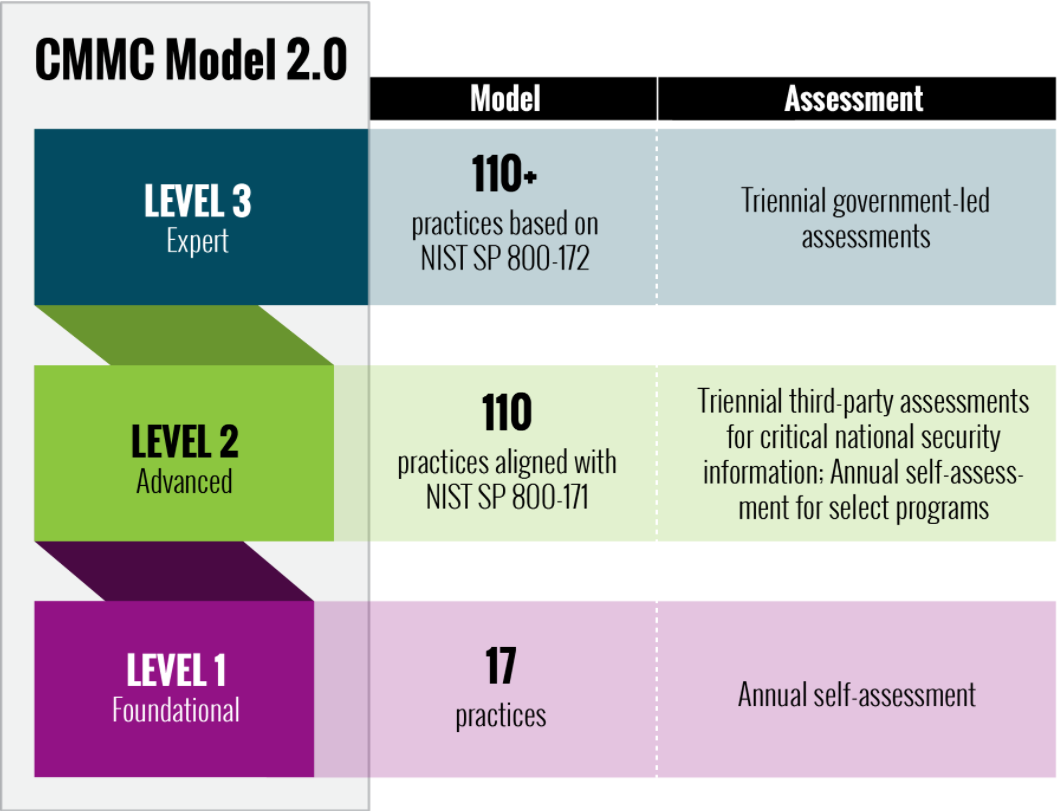

GDPR Assessment
Any company handling personal data of individuals inside the European Union (EU) or European Economic Area (EEA) must comply with the General Data Protection Regulation (GDPR).
A GDPR assessment is a systematic process that helps identify, evaluate, and reduce the risks associated with processing personal data. The General Data Protection Regulation (GDPR) requires organizations to take a proactive approach to data protection, including continuous assessment and improvement.
HIPPA Compliance Assessment
A federal law in the United States called HIPAA (Health Insurance Portability and Accountability Act) was created to safeguard the confidentiality and integrity of personal health information. It mostly affects health plans, healthcare clearinghouses, and healthcare providers, along with their commercial partners.
A HIPAA Compliance Assessment is a comprehensive process designed to evaluate how well an organization adheres to the requirements set forth by the Health Insurance Portability and Accountability Act (HIPAA), which governs the protection of patient data and sensitive health information.
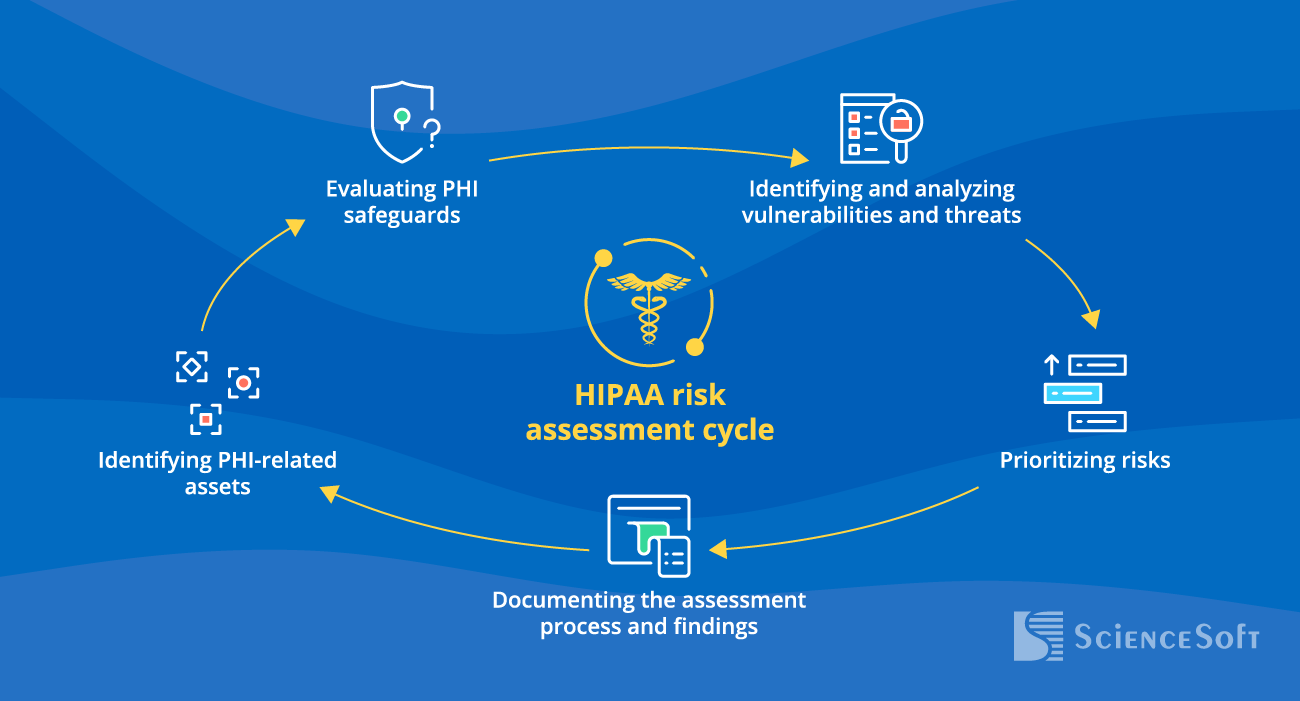

ISO Assessment
With the goals of ensuring quality, safety, efficiency, and interoperability, International Organization for Standardization (ISO) standards address a wide range of subjects and industries.
An ISO assessment is a formalized evaluation of an organization's management systems against the standards set by the International Organization for Standardization (ISO). ISO assessments can include audits and risk assessments:
MARS-E Assessment
The MARS-E (Malpractice and Risk Self-Assessment for the Environment) is a tool primarily used in healthcare and related fields to assess risk factors associated with malpractice and environmental safety
A methodology called MARSE (Model for Assessing and Reducing Security Exposure) was created to assist businesses in identifying, evaluating, and minimizing security risks and vulnerabilities. It is employed in the assessment of security controls' efficacy and in the formulation of risk mitigation plans.

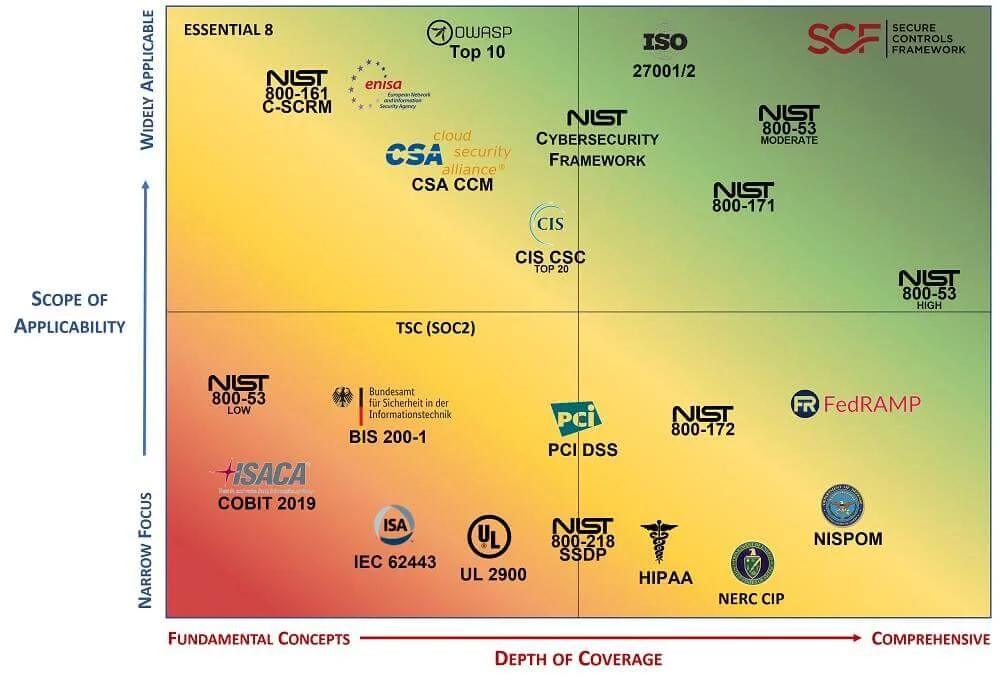
NIST 800X Assessment
The NIST 800-series refers to a collection of cybersecurity guidelines, best practices, and standards published by the National Institute of Standards and Technology (NIST). The specific designation "800X" can refer to any of the documents in this series, with each focusing on a different aspect of cybersecurity, risk management, or IT infrastructure.
The National Institute of Standards and Technology (NIST) is a U.S. federal agency that develops and promotes measurement standards, guidelines, and practices to ensure the reliability and accuracy of various technologies and systems.
PCI Assessment
A & A Consulting presents the Payment Card Industry Data Security Standard (PCI DSS). The main purpose of this compliance is to safeguard cardholder data both during and following a financial transaction.
The PCI Security Standards Council (PCI SSC) is a global forum that brings together payments industry stakeholders to develop and drive adoption of data security standards and resources for safe payments worldwide.
